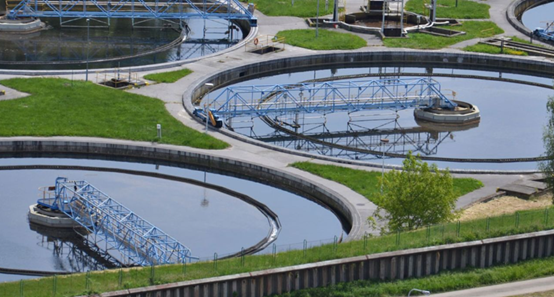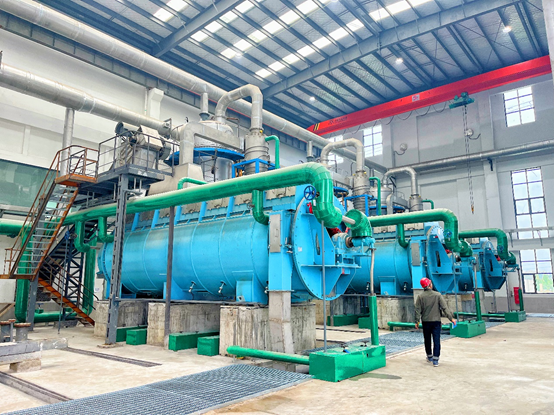

BLOG
Global Urban Sludge Management: A Call for Urgent Attention and Innovative Solutions
Global Urban Sludge Management: A Call for Urgent Attention and Innovative Solutions
04 September 2024
In the dawn of the 21st century, as urbanization continues its relentless march across the globe, cities face unprecedented challenges in managing their waste streams, particularly in the realm of sewage sludge—a byproduct of wastewater treatment processes. Urban sludge, a complex mixture of water, organic matter, microorganisms, and various contaminants, poses significant environmental and public health risks if not handled appropriately. This article delves into the current status of sludge management worldwide, highlighting both successes and shortcomings, and concludes with a passionate call for greater attention and innovative approaches to this pressing issue.

The Global Landscape of Urban Sludge Management
Europe: Europe has been at the forefront of sludge management innovation, driven by strict environmental regulations. Many countries employ advanced technologies such as anaerobic digestion for biogas production, composting for soil amendment, and thermal drying for landfilling or incineration with energy recovery. However, despite these efforts, finding economically viable and environmentally sound solutions for the vast quantities of sludge generated remains a challenge.
North America: In the United States and Canada, sludge management practices vary widely by region and municipality. Some facilities utilize innovative technologies like thermal hydrolysis and advanced oxidation to enhance sludge digestion and dewatering. Others rely more heavily on land application and landfilling, though concerns over nutrient overloading and pathogen transmission persist.
Asia: With rapid urbanization and limited land resources, Asian countries grapple with the dual challenge of managing large volumes of sludge while minimizing environmental impacts. China, for instance, has invested heavily in sludge treatment infrastructure, promoting technologies like incineration with energy recovery and co-composting. However, regulatory gaps and inadequate treatment capacity in many cities continue to pose challenges.
Africa and Latin America: In these regions, access to advanced sludge treatment facilities is often limited due to financial constraints, lack of technical expertise, and inadequate infrastructure. As a result, improper disposal practices like open dumping and unauthorized landfilling are common, leading to soil and water pollution.
Challenges and Opportunities
The global sludge management landscape is marked by several challenges, including:
- Financial Constraints: The high capital and operational costs associated with advanced sludge treatment technologies hinder widespread adoption.
- Regulatory Frameworks: Inconsistencies in regulations across jurisdictions create barriers to effective cross-border cooperation and knowledge sharing.
- Public Perception: Negative stereotypes about sludge can hinder public acceptance of innovative treatment and reuse options.
- Climate Change: The energy-intensive nature of some sludge treatment processes contributes to greenhouse gas emissions.
Yet, amidst these challenges, opportunities abound:
- Resource Recovery: Sludge contains valuable nutrients and energy that can be recovered through circular economy approaches.
- Technological Advancements: Emerging technologies, including digitalization and automation, offer potential for more efficient and cost-effective sludge management.
- Policy Innovation: Governments can incentivize sustainable sludge management practices through targeted policies and subsidies.
- International Cooperation: Collaboration among countries can accelerate the transfer of knowledge, technologies, and best practices.
A Call to Action
Urban sludge management is a critical component of our global efforts to achieve environmental sustainability and climate resilience. It requires a multi-stakeholder approach, involving governments, industry, academia, and the public alike. We must:
- Invest in Research and Development: Foster innovation in sludge treatment technologies, prioritizing those that promote resource recovery and reduce environmental impacts.
- Strengthen Regulatory Frameworks: Develop and enforce comprehensive regulations that encourage sustainable sludge management practices.
- Raise Public Awareness: Educate the public about the importance of proper sludge management and the benefits of innovative solutions.
- Promote Collaboration: Foster international cooperation and knowledge sharing to accelerate progress towards sustainable sludge management.
Together, we can transform the challenge of urban sludge into an opportunity for environmental progress and economic growth. Let us act now, before the weight of our waste overwhelms the planet we call home.

TIC Technology Co., Ltd.'s commitment to integrating and optimizing this technology underscores its dedication to providing efficient, reliable, and sustainable sludge drying solutions. As the demand for waste management solutions grows, TIC Technology Co., Ltd. will continue to play a crucial role in advancing the industry and promoting a cleaner, more sustainable future.
As a sludge dryer manufacturer and disc sludge drying solutions provider, we would be pleased to advise you individually, and you are also welcome to send your inquiry to tic@tdgtic.com.



